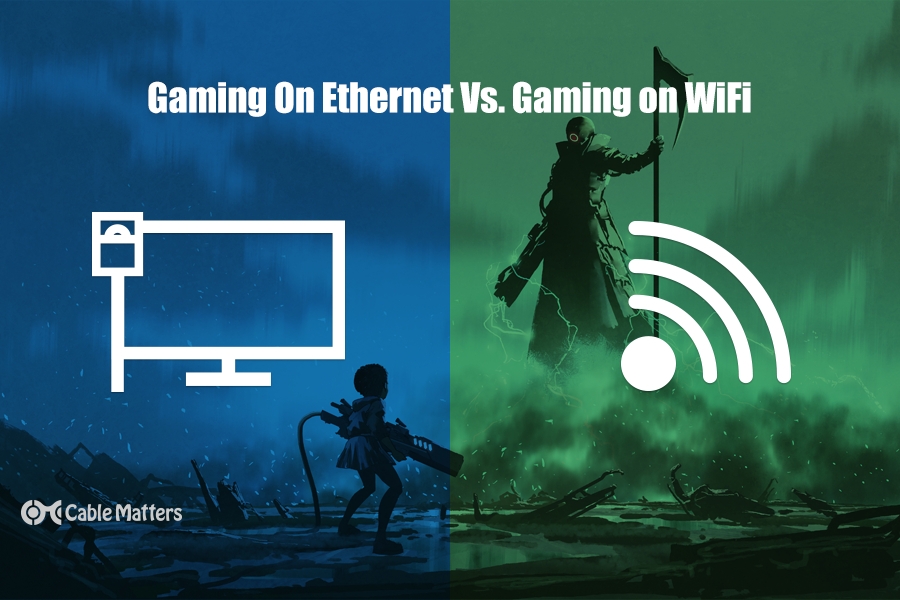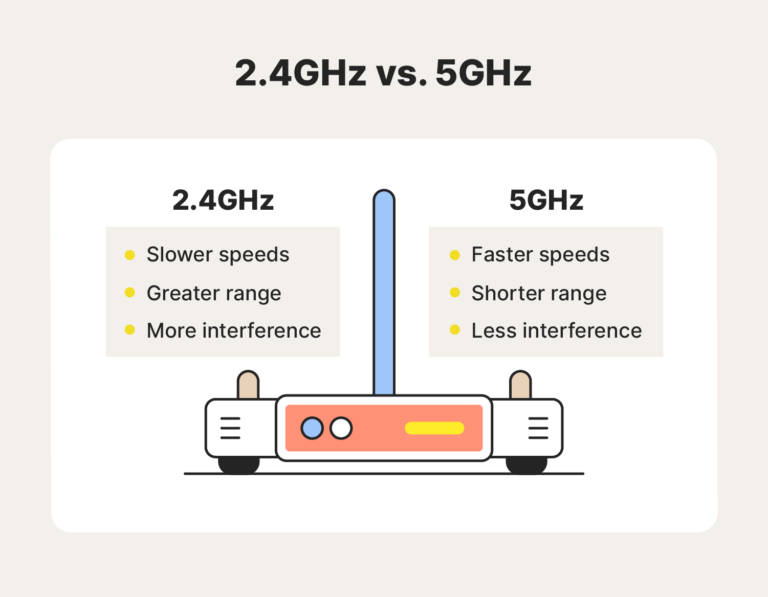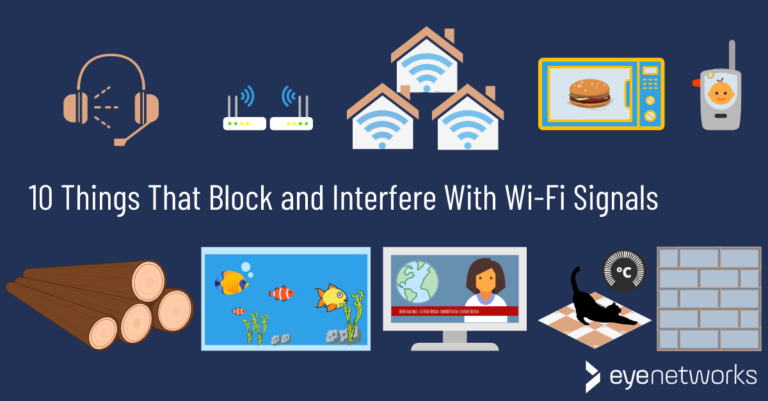Is LAN Better Than WiFi For Gaming?
The debate of whether LAN (Local Area Network) or WiFi (Wireless Fidelity) is better for gaming has been ongoing for years. While both have their advantages and disadvantages, LAN is typically considered the superior option for gaming due to its faster connection speeds, lower latency, and improved security. With LAN, gamers can enjoy a lag-free gaming experience and have access to the full range of features provided by their gaming system. Conversely, WiFi can be more convenient due to its wireless nature, but it is often slower, has higher latency, and is more vulnerable to outside interference. Ultimately, the choice between LAN and WiFi for gaming is up to the user, and depends on their individual needs and preferences.
What is LAN and WiFi?
Networking technology has evolved significantly over the years, providing gamers with a variety of options to choose from when it comes to connecting to the internet. Two of the most common technologies are LAN and WiFi. LAN stands for Local Area Network, and it is a method of connecting devices in a local area, such as in a home or office. On the other hand, WiFi stands for Wireless Fidelity and is a type of wireless network that allows devices to connect to the internet from a wider range. So, which is better for gaming – LAN or WiFi?
To answer this question, it is important to consider the advantages and disadvantages of each technology. LAN connections provide faster data transfer rates than WiFi, making them ideal for gaming since they can provide a more reliable connection with minimal latency. Additionally, the signal strength of a LAN connection is generally much higher than WiFi, meaning that the connection is less likely to be interrupted. However, LAN requires physical cables to be laid out, making it more difficult to set up.
On the other hand, WiFi connections are more convenient to set up and use since they don’t require any physical cables to be laid out. Additionally, they can provide access to the internet from a wider range, making them ideal for gamers who want to play online from different locations. However, WiFi connections tend to be slower and more prone to interference, leading to a less reliable connection with higher latency.
In conclusion, when it comes to gaming, LAN connections are generally the better option since they are faster and more reliable. However, if convenience is more important than speed, WiFi connections may be a better option. Ultimately, the decision of which technology to use depends on the individual’s needs and preferences.
Advantages of LAN for Gaming
LAN stands for Local Area Network, and it is the most popular form of network when it comes to gaming. LAN networks are often used for multiplayer gaming as they offer a more secure and reliable connection than a WiFi connection. A LAN connection is also much faster than a WiFi connection and is usually the preferred connection type for gamers. As a result, many gamers prefer to play on a LAN network as it offers many advantages, such as:
1. Low Latency: LAN connections have much lower latency than WiFi connections, meaning that gamers will experience less lag during online gaming sessions. This can be especially beneficial for players in competitive online games, such as first-person shooters, where fractions of a second can make the difference between victory and defeat.
2. Enhanced Security: LAN networks are much more secure than WiFi networks, making them a better choice for gamers who want to protect their data and keep their personal information safe.
3. Greater Stability: LAN networks are more stable than WiFi networks, making them ideal for gaming. As a result, gamers can expect smoother gameplay and fewer disconnections.
LAN networks are a great choice for gamers, offering enhanced speed, security, and stability. As such, many gamers prefer to use a LAN connection when gaming, as it gives them an edge over players using a WiFi connection.
Disadvantages of LAN for Gaming
When it comes to gaming, the debate of LAN versus WiFi rages on. While both offer advantages, there are certain drawbacks to consider when it comes to LAN. The most common disadvantage is the need for a wired connection, meaning that gamers must be physically connected to the same network in order to play together. This can be inconvenient if the players are located in different parts of the house or in different homes. Additionally, LAN connections are generally more susceptible to interference from other electronic devices, which can cause lag and latency issues. Finally, multiple players on a single network can lead to slower speeds, as the connection is shared among all the connected devices.
Overall, while LAN may offer a reliable connection, it is not without its drawbacks. Players must be physically connected, and the connection can be affected by interference. Additionally, multiple players can slow down the connection, making it less than ideal for gamers who prioritize speed.

Advantages of WiFi for Gaming
WiFi is an increasingly popular choice for gamers, especially those who are looking for a convenient and cost-effective way to enjoy their favorite titles. The main advantages of WiFi for gaming include increased flexibility, mobility, and cost-effectiveness. WiFi allows gamers to move around their home or office and play without having to be tethered to a wired connection. This makes it possible to enjoy gaming in different rooms, or even outdoors. Additionally, WiFi connections are often cheaper than wired connections, and for some gamers, this can be a deciding factor. Furthermore, WiFi connections are generally more secure than wired connections, and with the right security measures in place, they can be even harder to penetrate. Finally, WiFi connections can easily be shared with multiple devices, making it easy to connect devices such as tablets and smartphones to the same network. All of these advantages make WiFi an attractive option for gamers.
Disadvantages of WiFi for Gaming
When it comes to gaming, LAN and WiFi both offer different advantages and disadvantages. While WiFi offers the convenience of not having to lay out cords and cables, it can be unreliable when it comes to gaming. WiFi is prone to signal interference and can be unreliable if you don’t have a strong connection. Additionally, the speed of WiFi is dependent on the device’s distance from the router, and can be slower than a LAN connection. Even if your WiFi signal is strong, it can still experience lag or packet loss due to high traffic on the network. Finally, WiFi is not generally secure, as others in the area can connect to your network, weakening your connection and potentially compromising your data. For these reasons, a LAN connection is often preferred for gaming.
Final Thoughts – Is LAN Better Than WiFi for Gaming?
Are you a serious gamer who needs the best performance possible from your gaming setup? You may have heard that using a LAN connection is better than using WiFi for gaming, but is it really? After all, the answer isn’t as simple as yes or no. To answer this question, we must take a look at the pros and cons of each connection type.
A LAN connection is typically much faster than a WiFi connection, making it ideal for gamers who require low latency and consistent connection speeds. That said, LAN connections can be more complicated to set up and require physical cabling, which can be a hassle for some gamers. On the other hand, a WiFi connection is incredibly convenient and easy to set up. However, WiFi connections can be unreliable and can suffer from interference from other devices.
Overall, if you’re a serious gamer looking for the best performance, a LAN connection is probably your best bet. However, if you’re looking for convenience and don’t mind sacrificing a bit of performance, then a WiFi connection might be the way to go. Ultimately, the choice is yours.
FAQs About the Is LAN Better Than WiFi For Gaming?
Q1: Does LAN provide a better connection than WiFi for gaming?
A1: Yes, LAN generally provides a more stable and reliable connection than WiFi for gaming. Additionally, LAN connections typically have lower latency and faster speeds than WiFi connections.
Q2: How do I connect to a LAN for gaming?
A2: To connect to a LAN for gaming, you will need to plug an Ethernet cable into your computer and the router. You can then configure your network settings and join the LAN.
Q3: Is WiFi still suitable for gaming?
A3: While LAN connections are generally preferred for gaming, WiFi can still be suitable for gaming in some cases. If you have a strong WiFi connection with low latency, it can be suitable for gaming.
Conclusion
In conclusion, it is difficult to definitively say whether LAN or WiFi is better for gaming. While LAN connections tend to be more reliable and faster, they are also more expensive and require additional hardware to set up. WiFi connections are more convenient, but can be subject to more interference and less reliable speeds. Ultimately, it is up to each individual to decide which connection is better for their gaming experience.




